LinkedIn’s “Binance” Scam Survey

On a sunny May afternoon, two men on opposite sides of the Atlantic were waiting for each other’s decisions with their fingers crossed.
“We’ve done it!” said one of the two to their team members that same afternoon, “I have some wonderful news for you!” His name? Dmitriy Kryshtal, PR manager at CoinLoan.
The second negotiating party was Dean Greg Reinhart, the Listing and Partnership Manager at Binance or rather, a scammer, pretending to be a Binance employee.
Our story starts on May 18th, 2019, when CoinLoan received an official “Binance” listing confirmation. But first, we need to go back a few weeks to Reinhart’s initial proposal to be able to share our story.
Part 1: An Indecent Proposal
Our story begins with a message Kryshtal received from Reinhart one morning with an Earth-shattering proposition for CoinLoan’s team. Reinhart stated, “Getting your project listed on Binance exchange is not complex. Firstly, you have to fill the listing application forms.”
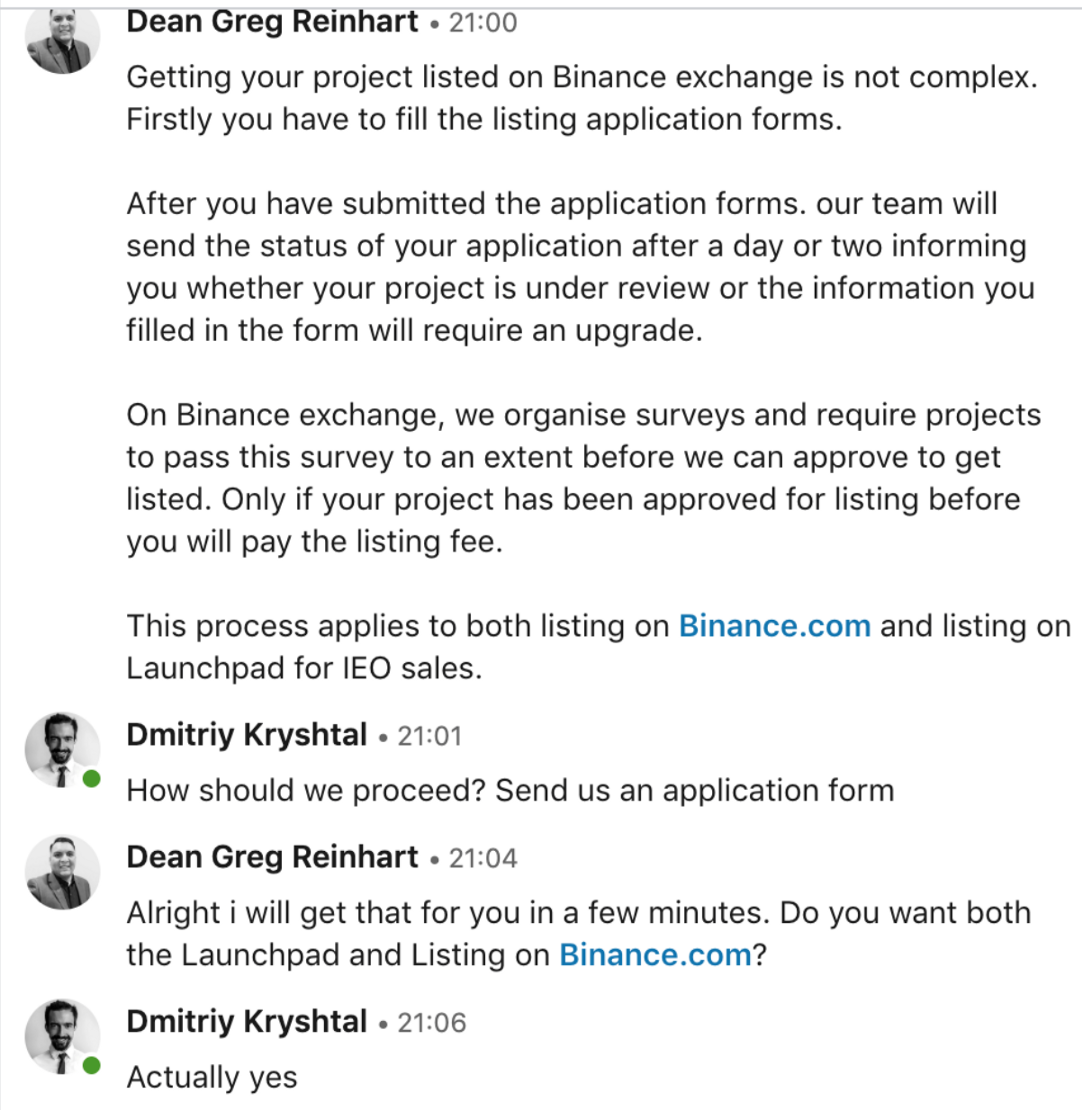
No one can know what thoughts crossed Dmitriy’s mind. It is unclear if Kryshtal initially suspected Reinhart of being deceptive. However, despite this hyper-deceitful crypto reality, there appears to be a glimmer of hope. Or maybe not. The “Binance applications” Reinhart sent to CoinLoan were made on Google Forms, which indicated to Kryshtal that the deal might not be legitimate.


Part 2: In Pursuit of the Truth
Everyone who has to deal with negotiations in the crypto-field is well-trained to exercise caution. Haunted by the memory of numerous scam cases CoinLoan has faced, Kryshtal expressed interest for proof that Reinhart worked at Binance.
“The persons you have encountered will make your worrisome and be meticulous,” stated the supposed Binance Manager. “You will get emails directly from Binance domain,” he continued.
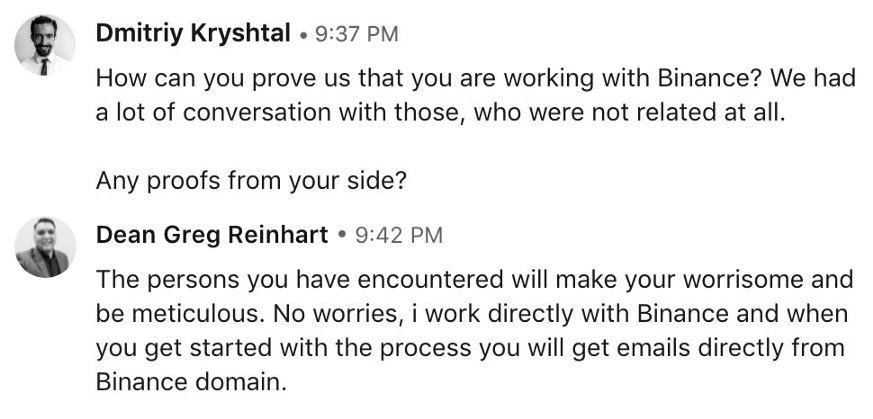
The proof was promised in the form of the only indicator — an email from Binance’s domain name. However, Kryshtal wanted actual assurance.
Sadly, Kryshtal didn’t get the assurance or proof he wanted; instead, he received an indirect confirmation of his suspicions. From there, he decided to investigate further to find indisputable evidence that Reinhart was not who he claimed to be.
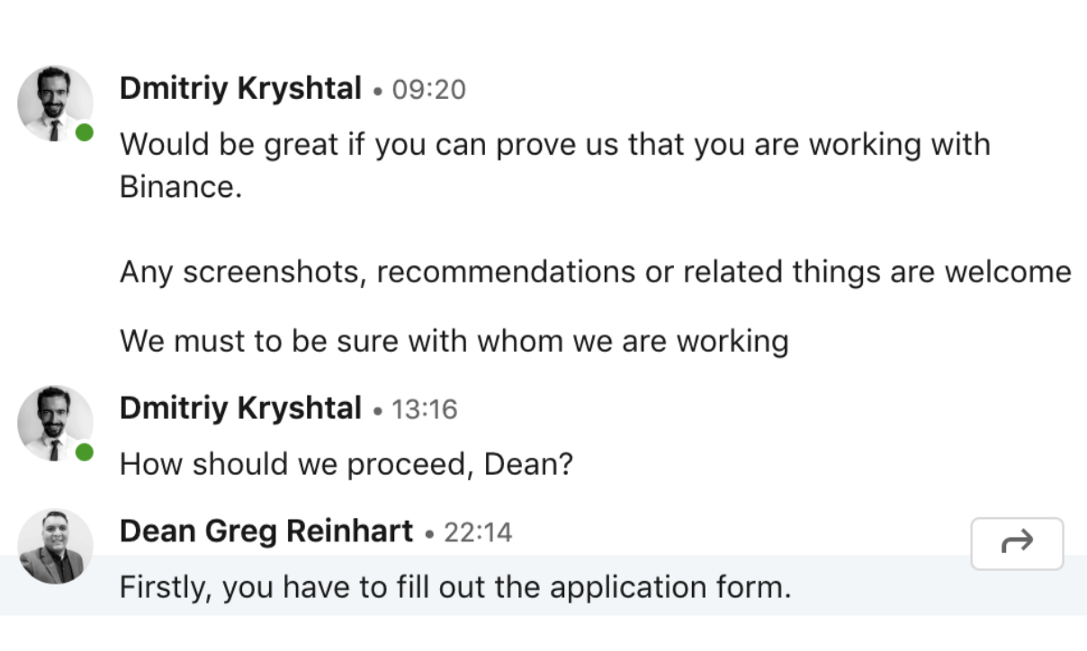
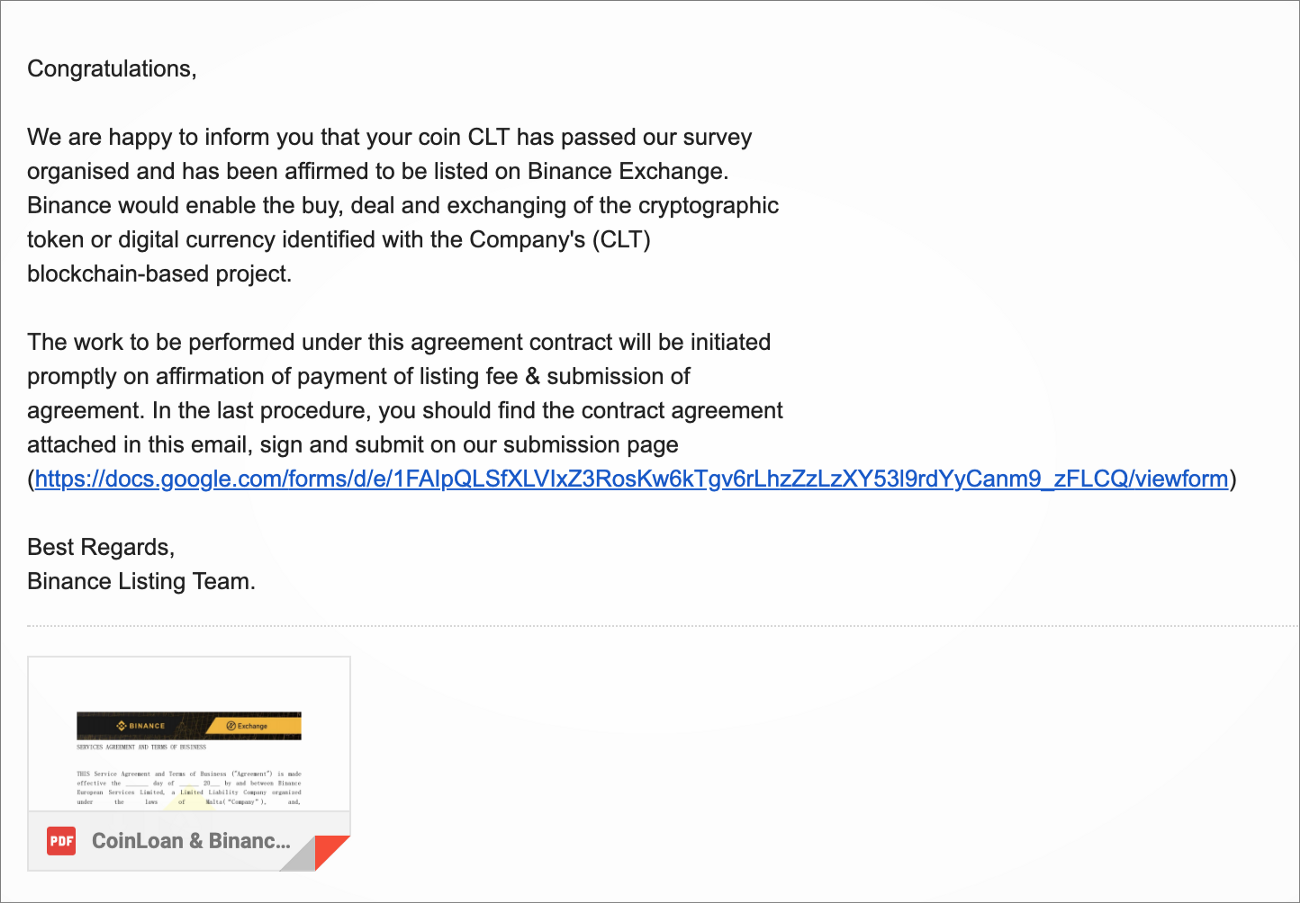
However, upon closer examination, red flags were noticed. First, we noticed that this email was located in our spam folder. “How do we know this isn’t just a scam?” we thought.
To find out the truth, we had the source code reviewed, and we were frustrated with our findings. As it turns out, the email confirmation was sent from a fake domain. How heartbreaking!
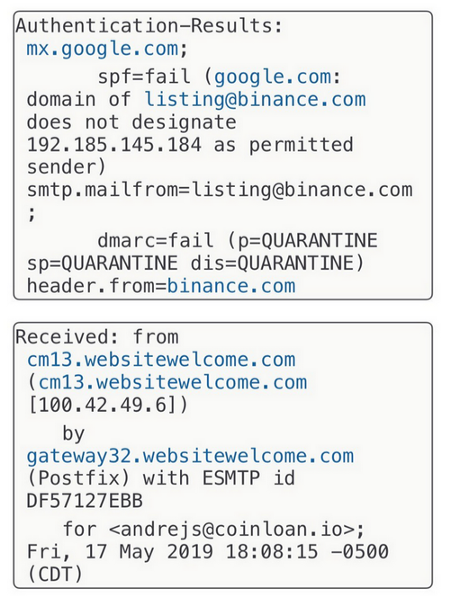
Reinhart knew that CoinLoan was investigating his proposal to find out if it was a scam. After Kryshtal informed Reinhart about what CoinLoan discovered regarding the “Binance” confirmation email, Reinhart blocked CoinLoan on LinkedIn.
What’s the Moral of the Story?
“Learn to deal with scams, and welcome to the world of freedom… lol.”
- Changpeng Zhao, Binance CEO
Binance tweeted that the majority of LinkedIn “Binance employees” are scammers pretending to be a part of the Binance listing team. There are over 500 individuals on LinkedIn claiming to be with Binance; however, Binance only has about 20 employees with public profiles.
Be aware of scammers. Most of the 500+ “Binance employees” on LinkedIn are FAKE. Our listing team is not public on LinkedIn. We will never contact you first about listing applications.
— CZ Binance (@cz_binance) December 3, 2018
Protect yourself from scammers: https://t.co/2V3FLs8MmM pic.twitter.com/lF01UuW1dw
Here’s How to Examine the Binance Listing Process
1. Read about the Binance listing process. If it is an exact match, you can rest assured.
2. The Binance team uses PGP to sign emails. If your email isn’t signed using PGP, then it is from a scammer.
3. The Binance listing team is not public on LinkedIn and will never message you first to propose a listing.
P.S. Scammers Never Give Up
A few days later…
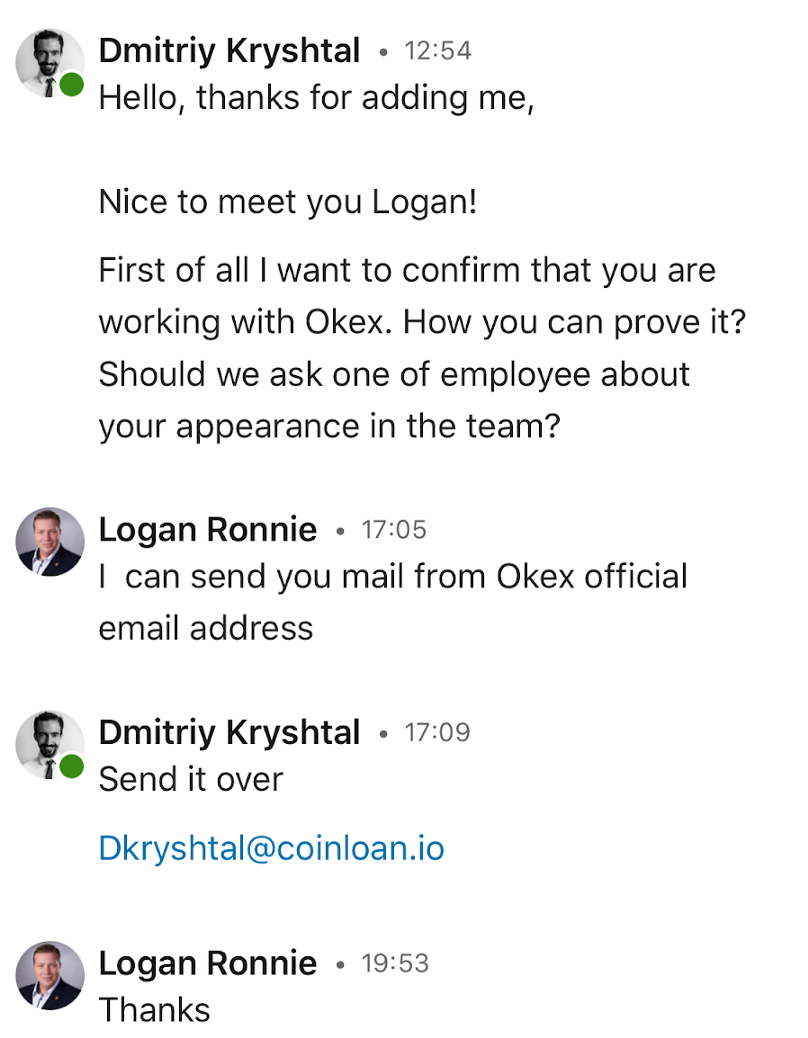

Online fraud that asks you to “send x-amount of Bitcoin” will keep happening as long as people remain uneducated about these scams. The Financial Conduct Authority (FCA), the United Kingdom’s primary financial regulator, reports that UK crypto investors lost over $34 million due to cryptocurrency and forex scams from 2018–2019.
The experience CoinLoan had with Reinhart’s Binance scam doesn’t only happen via Linkedin. Please be aware that this same criminal pattern may be used to lure others.
Some scammers may even pretend to be CoinLoan team members to get what they want. Never give out personal information over the phone or social media. Please be cautious.
Have you been affected by a celebrity-backed scam? Please share your experiences with us!
Platform | Website | Telegram | Email | Facebook | Twitter | Reddit